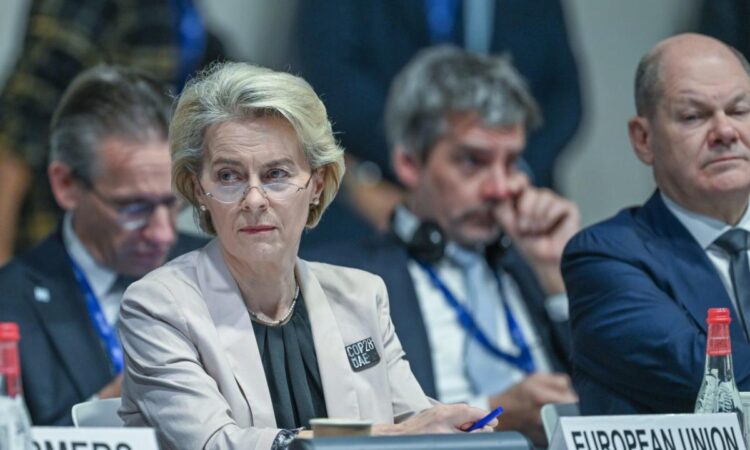
Good morning,
I spent much of last week in the UAE, where the United Nations COP climate meeting is now in full swing. And one of the most striking observations I made while there was the diverging nature of Europe’s two climate narratives.
On the government side, the European Union was among those making the most climate-minded proposals. The EU spearheaded an effort to set a global goal of tripling renewable energy by 2030. It also called for “concrete actions to phase out fossil fuels throughout energy systems globally,” and said it would be “pushing for language that reflects this in the final COP decision.”
Based on that strong advocacy, you would never guess that almost all of Europe’s largest companies in the past year made U-turns in these exact areas.
Rather than phasing out fossil fuels, Shell, for example, said that its production of oil and gas will remain stable until 2030, and that it will invest three to four times more in oil and gas until 2035 than in “low-carbon products,” Euronews reported. Similarly, TotalEnergies spent more than three times on oil and gas what it spent on renewables this past year, the Financial Times wrote in May. BP, too, made a “pivot back to oil,” Reuters reported in February.
These deviations from the EU’s course of action matter because Shell, TotalEnergies and BP are not just Europe’s largest energy companies, but are among the continent’s largest companies tout court. On Fortune’s inaugural Fortune 500 Europe list of largest companies by revenue, they came in at Nos. 1, 4, and 6, respectively.
This situation is problematic because the following two things cannot be true at the same time: that Europe pursues a policy of rapid decarbonization, betting that this creates prosperity for its people, and that its largest companies continue investing in fossil fuels for the sake of their stakeholders.
If the former statement is correct, Shell, BP and Total will cease being Europe’s largest firms sometime in the next decade because they lack renewable investments. If it is the latter, European policymakers will have wasted a lot of money on renewable technologies that won’t drive its economy forward for at least another decade.
Such disjunction almost make one wistful for the bygone era of state-owned energy companies. In Europe, not all state-owned energy companies are a thing of the past. Germany’s Uniper (No. 3) and France’s aptly named “Electricite de France” (No. 10) are state-owned (though Uniper only temporarily). They also stand out as having climate goals that reflect the EU’s.
Is that the secret to energy alignment, then? Should Europe revert to exerting greater control over its energy companies to force through its energy agenda? Should its energy companies take more cues from policymakers, rather than their shareholders? Or should each just carry on doing what they think is right?
Wherever you stand on this issue, it’s clear everyone needs to be on the same page soon. Energy supply is Europe’s No. 1 economic concern, and energy companies are more vital to its economy than those in the U.S. It’s a Catch-22 that doesn’t bode well for Europe’s future competitiveness.
More news below.
Peter Vanham
[email protected]
@petervanham
This story was originally featured on Fortune.com






